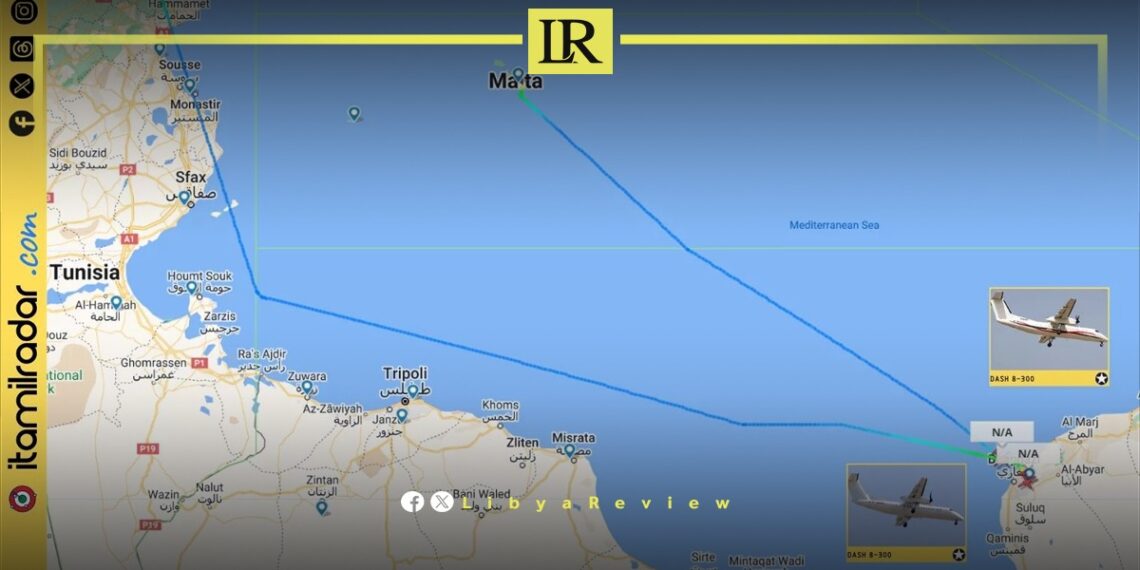On Sunday, the Italian website, ItamilRadar, which specialises in monitoring military aircraft, reported that two United States (US) Dash 8-300 aircraft landed in Benghazi, sparking curiosity about their purpose in the politically sensitive region of Libya.
The first aircraft, registered as N568AW and linked to the US Department of State, flew in from Tunis. Shortly after, a second Dash 8-300 with the registration N706XT, believed to be associated with the US Africa Command (AFRICOM), arrived from Malta.
The simultaneous landing of these aircraft in Benghazi, a key city in Libya’s complex geopolitical landscape, has led to speculation about the nature of their mission, which remains undisclosed.
The choice of Dash 8-300 aircraft, renowned for their operational versatility, points to a mission necessitating robust and flexible transport capabilities.
Given the affiliations of these aircraft with key US entities like the Department of State and AFRICOM, the mission could be of notable diplomatic or strategic importance, though official commentary remains absent.
Libya’s strategic importance, amplified by its oil wealth and Mediterranean coastline, has made it a focal point of international diplomacy and conflict. This particularly after the 2011 uprising that toppled Moammar Gaddafi. This event reshaped Libya’s political landscape, leading to a period of unrest and division that continues to draw international involvement.
The appearance of US aircraft in Benghazi, against the backdrop of Libya’s complex political and security challenges, raises pertinent questions about US engagement in the region.
The precise nature of this engagement, whether it be diplomatic outreach, military coordination, or intelligence gathering, remains a matter of conjecture.
As observers await further developments, this incident highlights the ongoing international stakes in Libya’s journey toward stability and sovereignty. It underscores the nuanced interplay of foreign interests in the country’s future.


